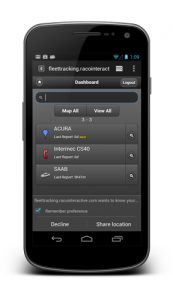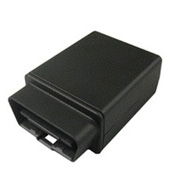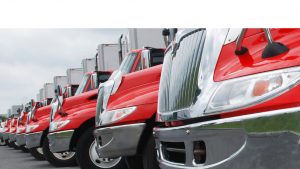 1. What tracking data is relevant to your business?
1. What tracking data is relevant to your business?
Most GPS tracking systems available in the market today provide detailed information concerning your fleet of vehicles such as driver & vehicle data, alerts, and reporting. Some systems can even exchange information with the drivers. Depending on your business, some or all of this information may be relevant.
It is important for you to determine what specific information is best suited for your business and more importantly, how you will apply it to your processes. Otherwise, you can get lost in all of the information and spend more time tracking your vehicles than utilizing the information for the purpose of improving your business processes.
2. How will your employees react?
This is an area of concern because there will be employees who may view a fleet tracking system as a lack of trust from the employer. Some may even be apprehensive by viewing the system as an invasion of their privacy. However, the reality is most employees will accept this investment openly because the benefits will allow the drivers to perform their jobs better by increasing productivity, improving safety and providing documented proof of job performance. For those apprehensive employees, they are probably the ones who are most likely abusing your company vehicles and usage policies.
Prior to implementing a system, you may want to involve your drivers with helping to determine how best to apply a system for your business. You will help gain acceptance by involving them on the decision-making process and improve on the probability of utilizing the information to its fullest potential. Most employees want to help their employers increase revenue, reduce costs and improve safety. A proper, well-thought out implementation of a fleet tracking system will help a company recognize the key benefits and yield a very quick return on their investment.
3. How will you monitor the application?
Making time to perform any additional tasks like monitoring a fleet tracking system for most employers is a very difficult proposition; especially in difficult economic conditions. But just monitoring the application from your computer really would not be a good use of your time. Instead of monitoring, the better systems available in the market help you manage your fleet by providing only the data that you need and when you need it to help your business processes.
The system’s alerting and reporting functions should enable users to receive information based on events that trigger the alerts. These alerts can be speeding or other unsafe driver behavior, geofence ingress/egress or even vehicle preventative maintenance schedule. Management of the application can be performed via your web browser or remotely via a mobile phone application.
 4. What type of GPS device is best?
4. What type of GPS device is best?
Due to the explosive growth of GPS tracking over the last several years, there are hundreds of devices available in the marketplace. As with other electronic devices, there are very good products available based on your needs but there are also products on the low end of the quality and performance spectrum. Most GPS fleet tracking companies have tested and qualified various devices and can recommend options. This service will help take the risk out of purchasing an inferior product.
Other considerations include warranty, data storage, power source, and reliability. Additionally, the location of the device in your vehicle should be determined before opting for a particular device. The type of vehicle data weighs heavily on this decision. For example, if you want to collect engine diagnostic data, you should choose a GPS device that plugs into the OBD II port that is available in most vehicles. The device will stay powered while the vehicle is running and many of these devices gather engine diagnostic data that can be captured in many fleet tracking applications. Lastly, GPS data cannot reliably be received if the vehicle is inside a building or other structure. Be sure to select a device that has a store & forward feature so information can be transmitted once your vehicle moves outside
5. What kind of costs can I expect?
All fleet tracking systems charge an ongoing fee, usually monthly, for usage of the application. The components of this cost are a data plan from a cellular carrier to provide real-time tracking, the software application and service/support. When choosing a fleet tracking provider, select one that offers the best combination of ongoing cost, the features of the software application that best helps your business, and support services including user training.
The tracking data that your company will rely on is provided by the GPS satellite data, a cellular network to transmit this information, a dependable GPS device and a software application to help disseminate this information. It is important that you have reliable support from your provider for any issues that may arise due to potential outages.
